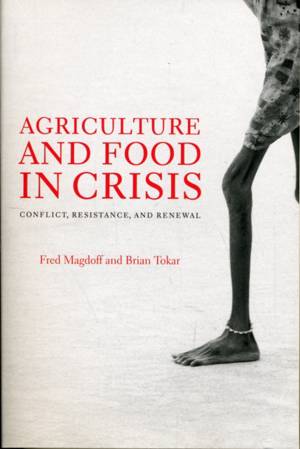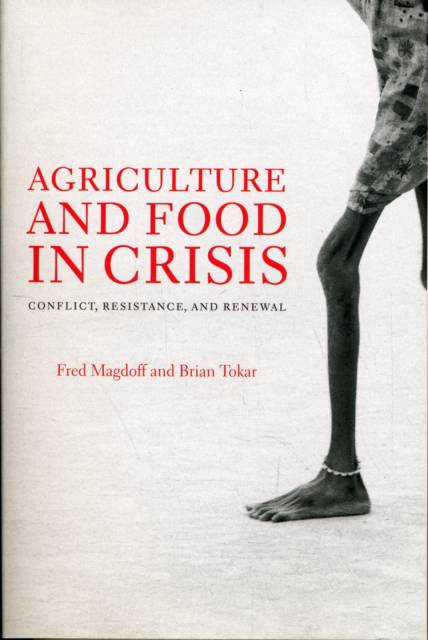
- Afhalen na 1 uur in een winkel met voorraad
- Gratis thuislevering in België vanaf € 30
- Ruim aanbod met 7 miljoen producten
- Afhalen na 1 uur in een winkel met voorraad
- Gratis thuislevering in België vanaf € 30
- Ruim aanbod met 7 miljoen producten
Agriculture and Food in Crisis
Conflict, Resistance, and Renewal
Fred Magdoff, Brian TokarOmschrijving
The failures of "free-market" capitalism are perhaps nowhere more evident than in the production and distribution of food. Although modern human societies have attained unprecedented levels of wealth, a significant amount of the world's population continues to suffer from hunger or food insecurity on a daily basis. In Agriculture and Food in Crisis, Fred Magdoff and Brian Tokar have assembled an exceptional collection of scholars from around the world to explore this frightening long-term trend in food production. While approaching the issue from many angles, the contributors to this volume share a focus on investigating how agricultural production is shaped by a system that is oriented around the creation of profit above all else, with food as nothing but an afterthought.
As the authors make clear, it is technically possible to feed to world's people, but it is not possible to do so as long as capitalism exists. Toward that end, they examine what can be, and is being, done to create a human-centered and ecologically sound system of food production, from sustainable agriculture and organic farming on a large scale to movements for radical land reform and national food sovereignty. This book will serve as an indispensible guide to the years ahead, in which world politics will no doubt come to be increasingly understood as food politics.
Specificaties
Betrokkenen
- Auteur(s):
- Uitgeverij:
Inhoud
- Aantal bladzijden:
- 288
- Taal:
- Engels
Eigenschappen
- Productcode (EAN):
- 9781583672266
- Verschijningsdatum:
- 1/11/2010
- Uitvoering:
- Paperback
- Formaat:
- Trade paperback (VS)
- Afmetingen:
- 142 mm x 208 mm
- Gewicht:
- 394 g

Alleen bij Standaard Boekhandel
Beoordelingen
We publiceren alleen reviews die voldoen aan de voorwaarden voor reviews. Bekijk onze voorwaarden voor reviews.








